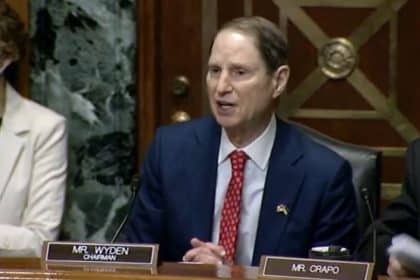California’s New Law Protects Teenagers Online

SACRAMENTO, Calif. — All children under 18 need to be protected on the internet, according to California lawmakers, who recently approved a new law that would extend online data protections to all children.
They sent the bill, the California Age-Appropriate Design Code Act, to Gov. Gavin Newsom’s desk at the end of August.
Once finally signed into law, the bill would create stronger protections for how online companies can use information collected from children using all types of online tools. It would go into effect July 1, 2024.
Currently only children 13 and under have their data protected under the 1998 Children and Teens’ Online Privacy Protection Act, which bars companies from tracking children’s online activities. Though the Senate is working to extend the law to children under 18.
Without any additional laws, teenagers have been largely left out of protections intended to minimize specific types of targeted advertising.
This bill specifically laying out data privacy protections for children builds on the 2018 California Consumer Privacy Act, which has created some of the strongest laws requiring companies to give customers more rights over how their data is used.
Children’s data privacy rights have been particularly scrutinized over the past year, particularly when social media is at play.
Much of that conversation started with Facebook whistleblower Frances Haugen, who testified last year about internal documents showing 13.5% of teen girls said Instagram increased their suicidal thoughts while 17% said it made their eating disorders worse. The disorders included anorexia nervosa and bulimia, which are potentially fatal.
She accused Facebook executives of covering up the truth to maximize the number of their customers and their profits.
California’s law would prohibit companies from collecting most types of information from children, unless it was absolutely necessary to use the application. It would also bar companies from using any of that information in a way that would be “materially detrimental to the physical health, mental health, or well-being of a child.”
It would also require companies to default children’s profiles to the strongest possible privacy settings.
It also limits the time companies can keep any information they collect on children and children will have more signals to tell them how the technology is being used.
According to the law, when parents and guardians use applications with geolocation or internet tracking abilities to help keep track of their children, those applications will have to “provide an obvious signal to the child when the child is being monitored or tracked.”
Privacy advocates including Jim Steyer, founder and CEO of Common Sense Media, applauded the passage of the law.
“AB 2273, however, is only part of the change we need to better protect young people from the manipulative and dangerous practices online platforms employ today. Modernizing internet safety standards cannot continue to be an afterthought.
“ California legislators, and lawmakers around the country, need to follow up on this important development by enacting additional online privacy and platform accountability measures,” Steyer said in a statement. “Common Sense looks forward to continuing our work with legislators next year to expand the meaningful progress just made on behalf of children and families across the state.”
Madeline can be reached at [email protected] and @ByMaddieHughes























